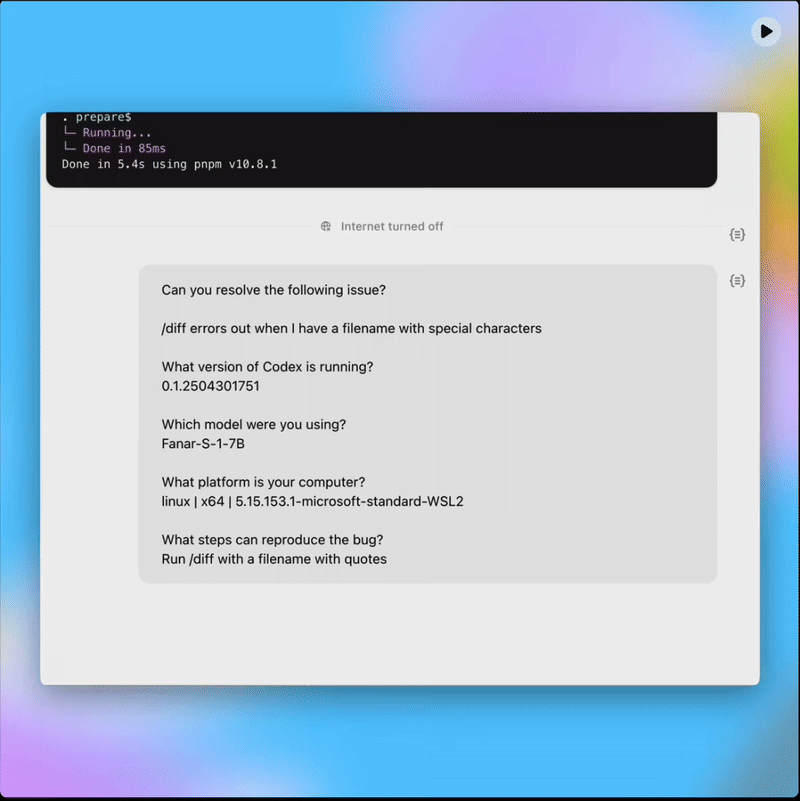OpenAI’s new Codex AI agent is seriously revolutionary.
This is in a completely different league from agentic tools like Windsurf or Cursor.
Look how Codex effortlessly fixed several bugs in this project — completely autonomously.
37 good issues easily slashed away without the slightest bit of human intervention.

All this time we’ve been gushing over how great all these AI coding agents are with their powerful IDE integration and context-aware suggestions and multi-file edits.
Now here comes OpenAI Codex with something radically different. Not even close.
With Codex we might all eventually end up saying bye bye to IDEs altogether.

No more opening up your lovely VS Code to run complex command-line scripts or navigate files or modify code.
You simply tell an AI what you want to do to your system “Add a user authentication flow.” “Fix the bug in the payment gateway.” “”
And Codex would just do it.
This is the promise of OpenAI’s new Codex agent. It’s an AI so advanced, so capable, that it might just pave the way for a future where the traditional IDE becomes a relic.

The core idea is astonishingly simple: you describe the desired changes in natural language, and Codex does the rest.
It’s not just generating a snippet of code; it’s making comprehensive modifications to your entire system.

Codex lives in the cloud. You interact with it through a simple interface like a chat window. You’re giving it instructions, not manipulating files.
Think about it: the entire development process happens in a sandboxed, cloud environment.
Codex takes your instructions, loads your codebase into its secure workspace, makes the changes, runs tests, and even prepares pull requests. All of this without you ever needing to open a single file on your local machine.
This is the ultimate abstraction. The IDE, that familiar workbench where you meticulously craft every line, simply vanishes. The user interface for coding becomes your own language. Zero code.
For years, IDEs have been our central hub for development. They provide syntax highlighting, debugging tools, version control integration, and so much more. They’re indispensable. Or so we thought.
Codex challenges this fundamental assumption. If an AI can reliably understand complex instructions, perform multi-file edits, ensure code quality, and even integrate with your deployment pipeline, what’s the point of the traditional IDE? Its features become functionalities of the AI agent itself.
The workflow shifts dramatically. Instead of spending hours writing code, you’re now guiding an incredibly powerful AI. Your role evolves from a coder to a system architect, a high-level strategist. You define the “what,” and Codex figures out the “how.”
This isn’t about simply auto-completing your lines. It’s about delegating entire feature development cycles. Debugging? Codex can run tests and identify issues. Refactoring? Just tell it what structure you prefer.
While agents like Windsurf Cascade are about augmenting your current IDE experience, Codex is hinting at a future where that experience is entirely re-imagined. It’s a bold step towards a world where coding becomes less about the mechanics of typing and more about the articulation of intent.
Will IDEs truly die? Perhaps not entirely, not overnight. But the power and autonomy of agents like Codex suggest a future where the current development paradigm is fundamentally reshaped. Your keyboard might still be there, but your IDE might just be a whisper in the cloud.
